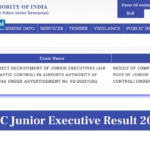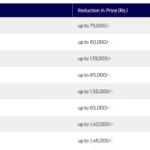Maruti Suzuki India Ltd., the largest passenger vehicle manufacturer in the country, continues to dominate the Indian automobile sector. As we enter the second half of 2025, the company’s share price movements, financial performance, and future prospects remain under close watch by investors, analysts, and auto enthusiasts.
This blog delves into the recent price trends of Maruti Suzuki shares, a breakdown of its Q1 FY26 performance, and what the future holds for this automotive giant.
📊 Share Price Overview (August 2025)
As of August 1, 2025, Maruti Suzuki’s stock closed at approximately ₹12,299. This represents a slight correction of around 2.6% from the previous trading day. Despite this dip, the stock remains strong overall, hovering well within its 52-week range.
Key Stats:
- Current Price: ₹12,299
- 52-Week Low: ₹10,725
- 52-Week High: ₹13,675
- Market Capitalization: ₹3.9 lakh crore (approx.)
- PE Ratio: 26–27×
- Dividend Yield: ~1.1%
The stock has shown resilience and long-term upward momentum, despite short-term fluctuations driven by market sentiment and global economic conditions.
📈 Recent Share Price Movement
July 2025 Performance:
- July 29: The stock gained around 1.1%, outperforming the broader market indices.
- July 30: Maruti Suzuki rose another 1.19%, maintaining its positive trend and showing strength amidst sector volatility.
- July 31: The rally slowed, and the stock posted a minor gain of 0.10%.
- August 1: The stock corrected by about 2.65%, primarily due to profit-booking and weak cues from global markets.
Despite the recent dip, Maruti’s stock remains relatively stable and is still considered a blue-chip investment for long-term investors.
🧾 Q1 FY26 Financial Results Summary
Maruti Suzuki’s Q1 FY26 financial performance was a mixed bag, with strong export numbers and revenue growth, but a relatively flat profit margin due to soft domestic demand and higher input costs.
Financial Highlights:
- Consolidated Net Profit: ₹3,792 crore (up ~0.9% YoY)
- Standalone Net Profit: ₹3,712 crore
- Consolidated Revenue: ₹38,605 crore (up ~8% YoY)
- EBITDA: ₹3,996 crore (margin: 10.3%)
- Total Sales: Slightly up by ~1.1% YoY
The increase in revenue was largely supported by higher realizations per vehicle and a sharp rise in export volumes.
🌍 Exports Drive Growth Amid Weak Domestic Demand
One of the key contributors to Maruti’s performance this quarter was a remarkable 37–38% growth in exports. While domestic volumes saw a ~6% decline due to subdued urban demand and high vehicle loan interest rates, the export market helped balance the scales.
This diversification of revenue sources underlines Maruti’s strategy to reduce dependence on the Indian market and explore stronger global footprints.
🚗 Product Strategy and Launches
Maruti Suzuki has been expanding its portfolio beyond budget hatchbacks to include SUVs, hybrids, and premium sedans. In FY26, the company plans to introduce multiple new models across segments including:
- Updated Grand Vitara Hybrid
- Jimny variants for international markets
- New-gen Swift and Dzire
- Concept-based EV in late development stage
This diversified product pipeline is aimed at meeting the evolving preferences of Indian and global consumers.
🏭 Industry Position and Market Share
As of mid-2025, Maruti Suzuki holds a commanding market share of 41–43% in the Indian passenger vehicle segment. It remains the top-selling brand in categories like:
- Entry-level hatchbacks
- Compact SUVs (through Brezza and Fronx)
- MPVs (with the Ertiga and XL6)
Despite growing competition from Tata Motors, Hyundai, and MG Motor, Maruti continues to dominate due to its extensive dealer network, service reliability, and fuel-efficient offerings.
💼 Stock Fundamentals and Valuation
From a valuation perspective, Maruti Suzuki’s stock is considered reasonably priced compared to its peers in the automobile sector.
Fundamental Metrics:
- Earnings Per Share (EPS): Robust and steadily growing
- Book Value: ₹3,061 per share
- Debt-Free Company: Zero net debt
- Return on Equity (ROE): ~15–16%
- Operating Cash Flow: Consistently positive
Long-term investors consider the stock as a stable compounder, with consistent dividend payouts and sound financial management.
📉 Challenges and Risks
While Maruti Suzuki has performed well in many areas, some challenges persist:
- Rising Competition: Especially in the EV and hybrid segments from Tata and foreign OEMs
- Commodity Price Volatility: Affects input costs and margins
- Rural Demand Uncertainty: Monsoon and agricultural income can significantly impact sales in semi-urban areas
- EV Transition: Maruti is late in EV adoption compared to peers like Tata Motors and Mahindra
Managing these risks will be crucial for sustained performance and shareholder confidence.
📊 Analyst Sentiment and Outlook
Most analysts maintain a “Buy” or “Hold” rating on the stock, based on the company’s strong fundamentals and future growth drivers. The company’s bet on exports, premium offerings, and upcoming hybrid models positions it well for the next phase of growth.
Bullish Triggers:
- Entry into hybrid and EV space
- Strong export pipeline
- Rural demand recovery with better monsoons
- Policy support for Make-in-India initiatives
Bearish Indicators:
- Prolonged weakness in domestic volumes
- Margin pressure from inflation and price competition
- Delay in EV rollout compared to rivals
🔮 Share Price Forecast
Based on current performance, future earnings potential, and industry trends, analysts expect the stock to remain in the range of:
- Short-Term: ₹12,200 to ₹12,800
- Medium-Term (6–12 months): ₹13,000 to ₹14,500
- Long-Term (1–3 years): ₹15,000+ if export growth and product expansion succeed
These forecasts are based on the assumption that macroeconomic conditions remain stable and that the company executes its EV and export strategies effectively.
🧠 Final Thoughts
Maruti Suzuki remains a cornerstone stock in the Indian automotive industry and a preferred choice for long-term investors. Despite short-term market volatility and sector-specific headwinds, the company’s fundamentals remain strong.
Its ability to adapt to changing market dynamics, strategic focus on exports, and planned expansion into EVs and hybrids make it a stock worth watching closely.
If you’re a value-driven investor or someone looking for a blue-chip auto stock with growth potential, Maruti Suzuki continues to make a compelling case in 2025.










